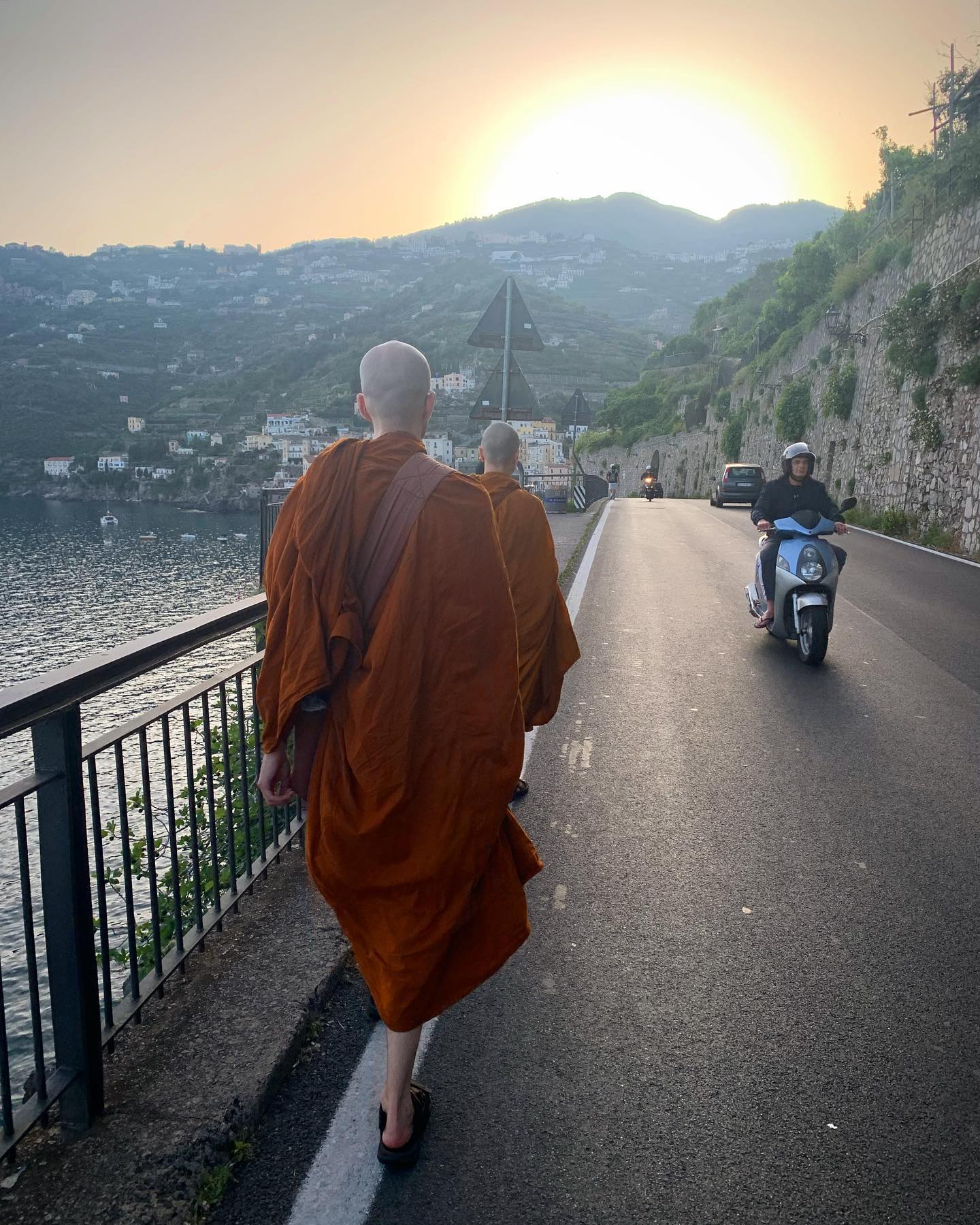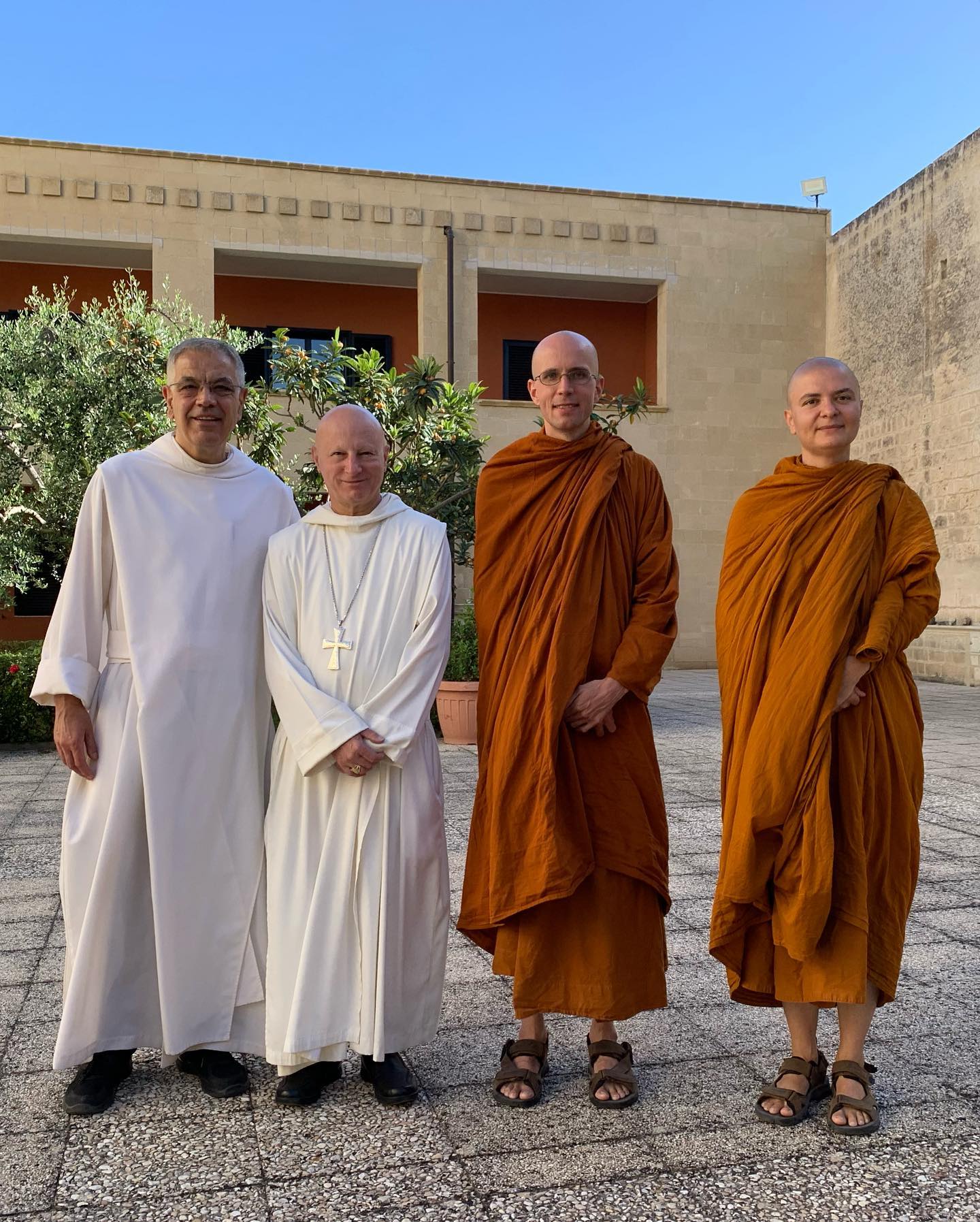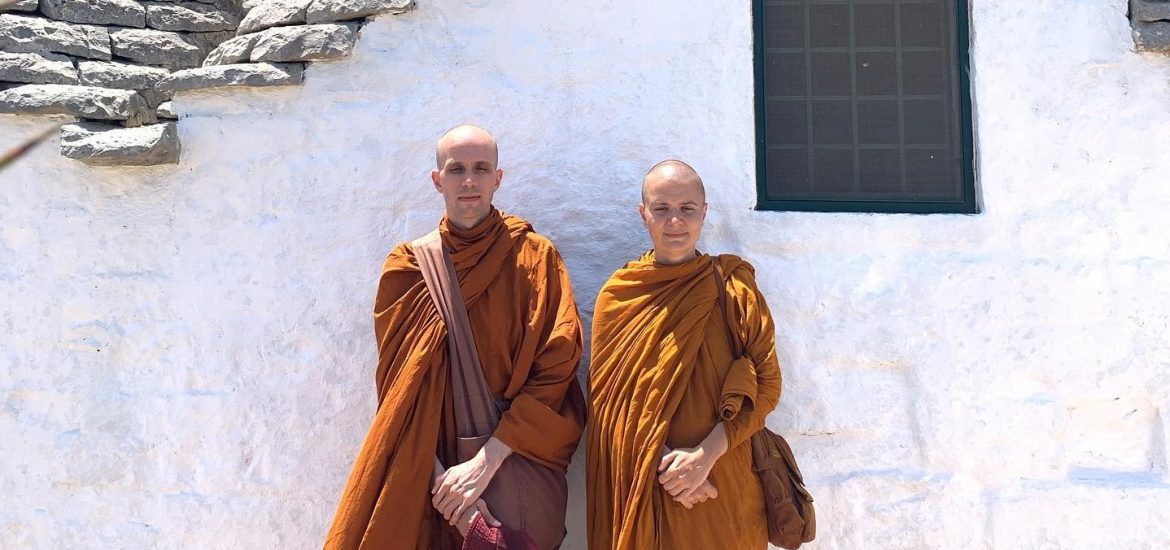Ayya Soma and Bhante Suddhaso in Cisternino. Image courtesy of Ayya Soma
Ayya Soma is a Theravada Buddhist bhikkhuni and co-founder of the non-profit Buddhist Insights. Recently, she, fellow co-founder Bhante Suddhaso, and members of her organization arrived in Italy to share the richness of the Theravada life, aspects of which would be commonplace in Southeast Asia. These include the opportunity for laypeople to practice dana (almsgiving), giving Dhamma talks, and holding meditation teachings. She took time out of her busy schedule to highlight the situation on the ground in the areas she has travelled to.
Raymond Lam (RL): Your organization, Buddhist Insights, is presently in Italy until 23 June. Can you share what you’re doing throughout the visit?
Ayya Soma (AS): Buddhist Insights is an organization that I started with Bhante Suddhaso in January 2016 with the mission of facilitating people’s access to Buddhist monastics. Just like in the United States, there are many people in Italy who are interested in Dhamma, but have never had the opportunity to meet a bhikkhuni or a bhikkhu in person and learn the teachings from them. During this trip we are here to make this opportunity accessible to them, by going on the practice of pindapāta, giving Dhamma talks, and offering meditation instructions and retreats throughout the country.

RL: Tell me a bit about the Buddhist community that is receiving you and the other monastics.
AS: We have received invitations throughout the Italy from several different people that range from self-identified Buddhists, to meditation practitioners, individuals who have previously only contacted the Dhamma by reading Buddhist books, all the way to people who we have met on the streets while doing pindapāta who were interested in learning more about monastics.
RL: From your observations, what is the landscape of Theravada Buddhism in Italy?
AS: Due to a Catholic monastic tradition that has already been present in Italy for a millennium, along with the increasing popularity of the Dalai Lama in the West, Italian culture seems very open to Buddhist monasticism. In the past few decades, there has also been a strong immigration from Sri Lanka which has led to many temples opening in major Italian cities. Santacittarama Monastery, in the Thai forest tradition of Ajahn Chah, has also grown exponentially throughout the years.
As Italian people also often travel to Thailand for the holidays, there is a solid awareness of the Theravada form, such as the appearance of our robes and atmosphere of practice. There is especially an appreciation of and willingness to support monastics who follow the Vinaya by not handling money and living off of food donations.
There are only two Italian Theravada bhikkhunis, including myself, and only a handful of Italian bhikkhus. Buddhism is still in its infant stage in Italy, but people are hungry for Dhamma and eager to set up monasteries and places for practice. We are currently working on creating the conditions for a gender inclusive monastery to open in the south of Italy.

RL: Tell me about your journey to Buddhism and how you founded Buddhist Insights in New York.
AS: I was a layperson when I met Bhante Suddhaso in 2015. It was very difficult back then in NYC, where I was living, to find a monastic who would explain the Dhamma in English, so Bhante and I decided to start this non-profit organization, Buddhist Insights, to facilitate access. We would invite bhikkhunis and bhikkhus to come to the city and teach on a regular basis, and Bhante Suddhaso moved to the city from the forest (he is ordained in Ajahn Chah’s lineage of the Thai forest tradition) to offer guidance to the lay community. I started living as a renunciant shortly after launching our project, and this led me to take formal monastic vows a few years later.
In 2019 we launched Empty Cloud Monastery in West Orange, NJ, right outside New York City. It is an international, gender inclusive monastery where both bhikkhunis and bhikkhus learn and teach the Dhamma, and practice the Pāli Vinaya together. Our focus is on the Early teachings of the Buddha, but we are open to all schools of Buddhism, as we think fostering diversity is important to understand the original teachings without eliminating the precious traditions that have shaped the teachings. We hope to continue and grow this work in Italy as well.


